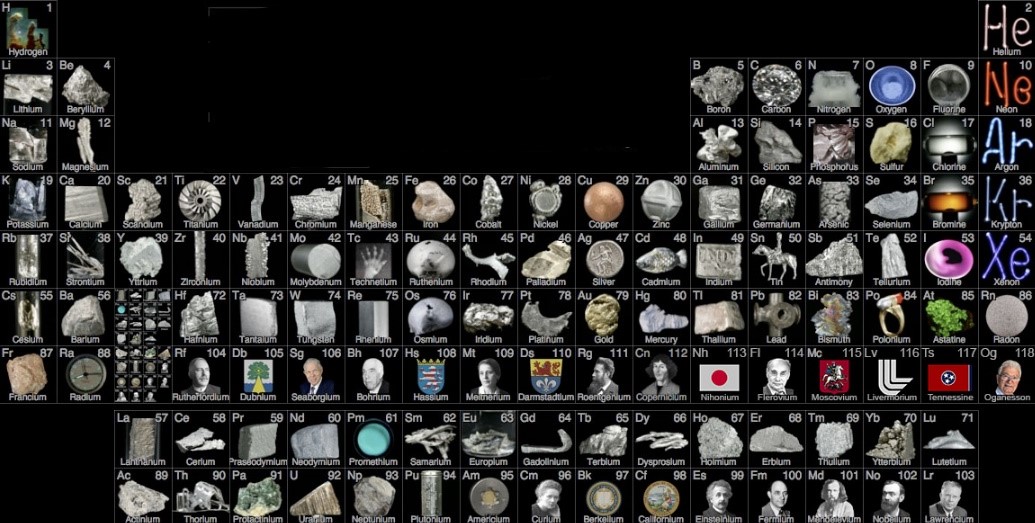An Introduction to the Periodic Table - The Periodic Table part 1

What are elements? Elements are the individual atoms that make up everything that is matter in our universe. They are substances that cannot be broken down into further atoms. Contrary to alchemists views on the world, there are 118 discovered elements, not four elements. These four elements were fire, water, earth, and air. To debunk these claims, you can just use simple science. Water is composed of two hydrogen atoms and one oxygen atom (H 2 O). The Earth’s crust is primarily made up of silicon dioxide (SiO 2 ) and magnesium oxide (MgO). The crust also has smaller amounts of FeO, Al 2 O 3 , CaO, Na 2 O, Fe 2 O 3 , TiO 2 , Cr 2 O 3 , MnO 2 and other, smaller percentages of compounds. Air is made primarily out of nitrogen and oxygen, along with smaller percentages of other gasses. Fire is usually started with phosphorus, and uses oxygen as an oxidizer to keep it burning. The substance the fire is burning is made out of elements (the fuel can be any number of things). Fire is a che...